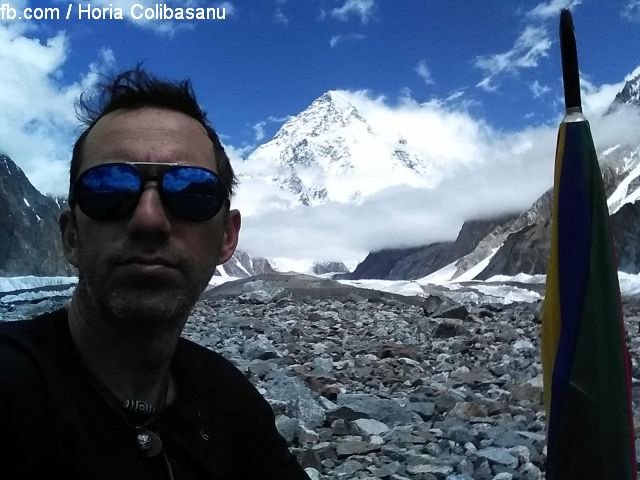Athlete of the week
Climber Horia Colibasanu

Florin Orban, 18.07.2023, 13:45
Mountain peaks have always posed a challenge for the human being,
Notwithstanding, it was not until 1950 that the first over-8,000m peak was
climbed by man. Back then the French Maurice Herzog and Louis Lachenal climbed the Annapurna peak in the Himalayas.
Being able to climb at such an altitude has remained, to this day, a great
performance. Last week such a performance was reiterated by a
Romanian. Climber Horia Colibăşanu this past Saturday succeeded to climb Broad
Peak in the Karakorum Massif, on the Pakistani-Chinese border, at an altitude
of 8, 051 meters. Colibasanu succeeded that with no help from the sherpas and
with no extra supply of oxygen. For 2023, it was Romanian climbing’s greatest
performance. Reason enough for Radio Romania International to designate Horia
Colibăşanu the Athlete of the week.
The Broad Peak 2023 Expedition was a project
carried by the Timisoara-based Alternatives Sports Club, affiliated to the
Romanian Climbing and Escalade Federation. Horia Colibasanu has been a member of, for so many years now. The Romanian set
off from Bucharest on June 26, heading towards the Pakistani city of Islamabad. From there, he went to Askole, on the Karakorum
main road, which is part of the ancient Silk Road. From there, he went trekking
for a week, to the base camp. Then the ascension towards the Broad Peak followed,
a peak formerly known as K3, a peak separated, to the north, from the spectacular
K2 by the Godwin – Austen glacier.
Broad Peak was the tenth over-8,000m peak Horia Colibăsanu has escalated
in his career. Also, he took part in 25 international expeditions, being the most
accomplished Romanian in high-altitude climbing. Horia still remains the
only Romanian to have reached the K2 and Daulagiri peaks, rated among the world’s
most dangerous such peaks. In 2017, Horia Colibasanu climbed Everest with no sherpas
and no extra supply of oxygen. Of the 6,000 successful ascensions of Everest,
less than two hundred were made with no extra supply of oxygen, a performance
considered impossible until 1978.






























